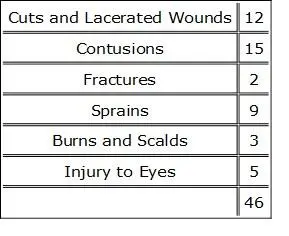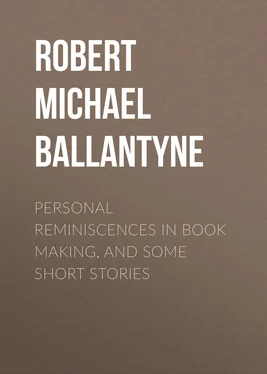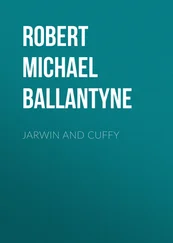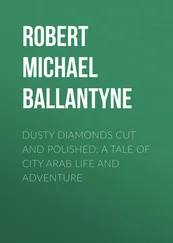Robert Michael Ballantyne - Personal Reminiscences in Book Making, and Some Short Stories
Здесь есть возможность читать онлайн «Robert Michael Ballantyne - Personal Reminiscences in Book Making, and Some Short Stories» — ознакомительный отрывок электронной книги совершенно бесплатно, а после прочтения отрывка купить полную версию. В некоторых случаях можно слушать аудио, скачать через торрент в формате fb2 и присутствует краткое содержание. Жанр: foreign_prose, literature_19, foreign_antique, на английском языке. Описание произведения, (предисловие) а так же отзывы посетителей доступны на портале библиотеки ЛибКат.
- Название:Personal Reminiscences in Book Making, and Some Short Stories
- Автор:
- Жанр:
- Год:неизвестен
- ISBN:нет данных
- Рейтинг книги:4 / 5. Голосов: 1
-
Избранное:Добавить в избранное
- Отзывы:
-
Ваша оценка:
- 80
- 1
- 2
- 3
- 4
- 5
Personal Reminiscences in Book Making, and Some Short Stories: краткое содержание, описание и аннотация
Предлагаем к чтению аннотацию, описание, краткое содержание или предисловие (зависит от того, что написал сам автор книги «Personal Reminiscences in Book Making, and Some Short Stories»). Если вы не нашли необходимую информацию о книге — напишите в комментариях, мы постараемся отыскать её.
Personal Reminiscences in Book Making, and Some Short Stories — читать онлайн ознакомительный отрывок
Ниже представлен текст книги, разбитый по страницам. Система сохранения места последней прочитанной страницы, позволяет с удобством читать онлайн бесплатно книгу «Personal Reminiscences in Book Making, and Some Short Stories», без необходимости каждый раз заново искать на чём Вы остановились. Поставьте закладку, и сможете в любой момент перейти на страницу, на которой закончили чтение.
Интервал:
Закладка:
So was it on the present occasion. Had the fire been distant, they would have had to commence their gallop somewhat leisurely, for fear of breaking down the horses; but it was not far off—not much more than a couple of miles—so they dashed round the corner of their own street and swept into the Edgeware Road at full speed.
Here the noise of our progress began, for the great thoroughfare was crowded with vehicles and pedestrians.
To pass through such a crowd without coming into collision with anything required not only dexterous driving, but rendered it necessary that two of the men on the engine should stand up and shout incessantly as we whirled along, clearing everything out of our way.
The men seemed to shout with the memory of the boatswain strong upon them, for their tones were pitched in the deepest and gruffest bass-key. Sometimes there was a lull for a moment, as a comparatively clear space of 100 yards or so lay before us; then their voices rose like the roaring of the gale as a stupid or deaf cabman got in our way, or a plethoric ’bus threatened to interrupt our furious career. The cross streets were the points where the chief difficulties met us. There cab- and van-drivers turned into or crossed the great thoroughfare, all ignorant of the thunderbolt that was rushing on like a fiery meteor, with its lanterns casting a glare of light before, and the helmets of the stern charioteers flashing back the rays from street-lamps and windows. At the corner of one of the streets the crowd of vehicles was so great that the driver of the engine began to tighten his reins, while Flaxmore and his comrades raised a furious roar. Cabs, ’buses, and pedestrians scattered right and left in a marvellous manner; the driver slackened his reins, cracked his whip, and the horses stretched out again.
“There, it shows a light,” observed Flaxmore, as we tore along Oxford Street. At that moment a stupid cabman blocked up the way. There was a terrific shout from all the firemen, at once! but the man did not hear. Our driver attempted both to pull up and to turn aside; the first was impossible, the latter he did so effectively that he not only cleared the cab but made straight at a lamp-post on the other side! A crash seemed inevitable, but Flaxmore, observing the danger, seized the rein next to him and swung the horses round. We flew past, just shaving the lamp-post, and in three minutes more pulled up at a house which was blazing in the upper floors. Three engines were already at work on it. Flaxmore and his men at once entered the burning house, which by that time was nearly gutted. I stood outside looking on, but soon became anxious to know what was doing inside, and attempted to enter. A policeman stopped me, but at that moment Flaxmore came out like a half-drowned rat, his face streaked with brick-dust and charcoal. Seeing what I wanted he led me into the house, and immediately I found myself in a hot shower-bath which did not improve my coat or hat! At the same time I stepped up to the ankles in hot water! Tons of water were being poured on the house by three powerful engines, and this, in passing through so much heated material had become comfortably warm. The first thing I saw on entering was a foaming cataract! This was the staircase, down which the water rushed, breaking over masses of fallen brickwork and débris, with a noise like a goodly Highland burn! Up this we waded, but could get no further than the room above, as the upper stair had fallen in. I was about to descend in order to try to reach the roof by some other way, when a fireman caught me by the collar, exclaiming— “Hold on, sir!” He thought the staircase was about to fall. “Bolt now, sir,” he added, releasing me. I bolted, and was out in the street in a moment, where I found that some of the firemen who had first arrived, and were much exhausted, were being served with a glass of brandy. If there were any case in which a teetotaller might be justified in taking spirits, it would be, I think, when exhausted by toiling for hours amid the heat and smoke and danger of a fire—nevertheless I found that several of the firemen there were teetotallers.
There was a shout of laughter at this moment, occasioned by one of the firemen having accidentally turned the branch or delivery pipe full on the faces of the crowd and drenched some of them. This was followed by a loud cheer when another fireman was seen to have clambered to the roof whence he could apply the water with better effect. At last their efforts were crowned with success. Before midnight the fire was extinguished, and we drove back to the Paddington Station at a more leisurely pace. Thus ended my first experience of a London fire.
Accidents, as may be easily believed, are of frequent occurrence.
Accidents.
There were between forty to fifty a year. In 1865 they were as follows:—

My friend Flaxmore himself met with an accident not long afterwards. He slipped off the roof of a house and fell on his back from a height of about fifteen feet. Being a heavy man, the fall told severely on him.
For about two weeks I went almost every evening to the Regent Street Station and spent the night with the men, in the hope of accompanying them to fires. The “lobby”—as the watch room of the station was named—was a small one, round the walls of which the brass helmets and hatchets of the men were hung. Here, each night, two men slept on two trestle-beds. They were fully equipped, with the exception of their helmets. Their comrades slept at their own homes, which were within a few yards of the station. The furniture of the “lobby” was scanty—a desk, a bookcase, two chairs, a clock, an alarm-bell, and four telegraphic instruments comprised it all. These last formed part of a network of telegraphs which extended from the central station to nearly all the other stations in London. By means of the telegraph a “call” is given—i.e. a fire is announced to the firemen all over London, if need be, in a very few minutes. Those who are nearest to the scene of conflagration hasten to it at once with their engines, while each outlying or distant station sends forward a man on foot. These men, coming up one by one, relieve those who have first hastened to the fire.
“Calls,” however, are not always sent by telegraph. Sometimes a furious ring comes to the alarm-bell, and a man or a boy rushes in shouting “ fire !” with all his might. People are generally much excited in such circumstances,—sometimes half mad. In one case a man came with a “call” in such perturbation of mind that he could not tell where the fire was at all for nearly five minutes! On another occasion two men rushed in with a call at the same moment, and both were stutterers. My own opinion is that one stuttered by nature and the other from agitation. Be that as it may, they were both half mad with excitement.
“F–f–f–fire!” roared one.
“F–f–f–fire!” yelled the other.
“Where away?” asked a fireman as he quietly buckled his belt and put on his helmet.
“B–B–Brompton!”—“B–B–Bayswater!” burst from them both at the same moment. Then one cried, “I—I s–s–say Brompton,” and the other shouted, “I—I s–say Bayswater.”
“What street?” asked the fireman.
“W–W–Walton Street,” cried one.
“N–No—P–P–orchester Terrace,” roared the other, and at the word the Walton Street man hit the Porchester Terrace man between the eyes and knocked him down. A regular scuffle ensued, in the midst of which the firemen got out two engines—and, before the stutterers were separated, went off full swing, one to Brompton, the other to Bayswater, and found that, as they had guessed, there were in reality two fires!
Читать дальшеИнтервал:
Закладка:
Похожие книги на «Personal Reminiscences in Book Making, and Some Short Stories»
Представляем Вашему вниманию похожие книги на «Personal Reminiscences in Book Making, and Some Short Stories» списком для выбора. Мы отобрали схожую по названию и смыслу литературу в надежде предоставить читателям больше вариантов отыскать новые, интересные, ещё непрочитанные произведения.
Обсуждение, отзывы о книге «Personal Reminiscences in Book Making, and Some Short Stories» и просто собственные мнения читателей. Оставьте ваши комментарии, напишите, что Вы думаете о произведении, его смысле или главных героях. Укажите что конкретно понравилось, а что нет, и почему Вы так считаете.












